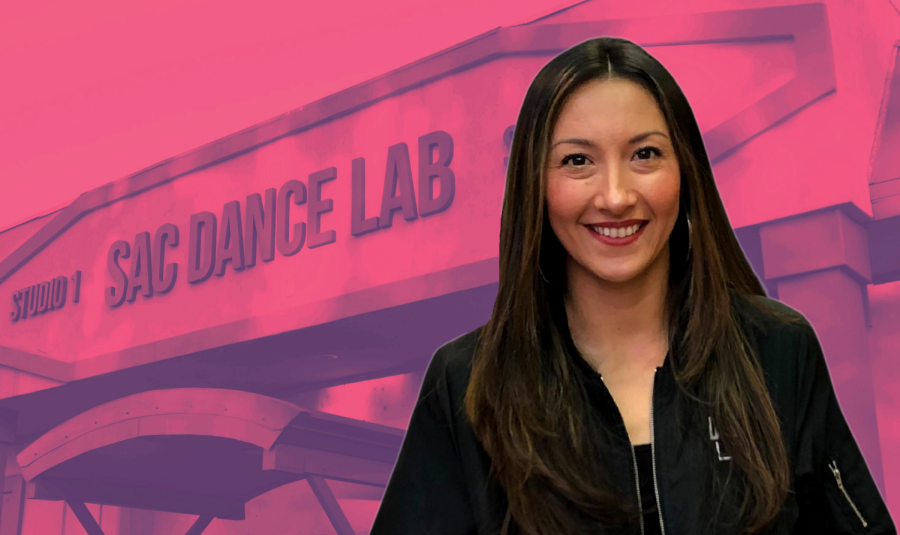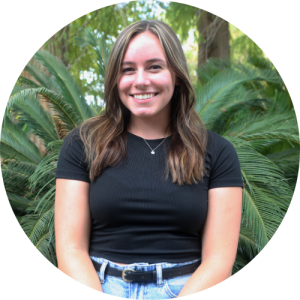How a Sac State alumna moved from journalism to choreography
The owner of Sac Dance Lab reflects on the evolution of her career
Isela Ortiz graduated from Sac State in 2012 with a journalism degree and is the founder and owner of Sac Dance Lab. The studio provides classes in commercial dance which were once exclusively available in larger cities like Los Angeles. Photos taken by Marin Perego. Graphic created in Canva by Marin Perego.
February 3, 2022
Bright red lights flooded the walls of Sac Dance Lab’s Studio 2 as music surged through the speakers. Dancers cheered each other on before one last run of choreography that culminated in a contemporary class.
Isela Ortiz, Sac Dance Lab’s owner and executive director, ran to the front of the dance floor to videotape the combination.
Sac Dance Lab is a community-focused space which focuses on professional dance training, bringing industry professionals to the Sacramento area to grow the small commercial dance industry.
Ortiz began her dance career studying ballet folklórico, a traditional Mexican dance style combining folklore and ballet techniques. She branched out to different styles of dance in her high school’s performing arts program, which she says provided her with training in multiple styles of dance at a near-professional level.
Ortiz graduated from Sacramento State in 2012 with a journalism degree, having written for The State Hornet for one semester. After graduating, she said she began writing for her family’s business, Latino Journal, and looking forward to a career in media, in which she hoped to write reviews of dance and theater performances.
Ortiz was heavily involved in the dance program at Sac State, which allowed her to earn enough credits to apply toward a minor in dance. She also joined the Sac State Dance Team, which performs at school football and basketball games.
“It was a totally different style than I was used to, which then led me to wanting to dance pro,” Ortiz said. “Some folks would maybe call it ‘cheerleading’ for some of the NFL and NBA.”
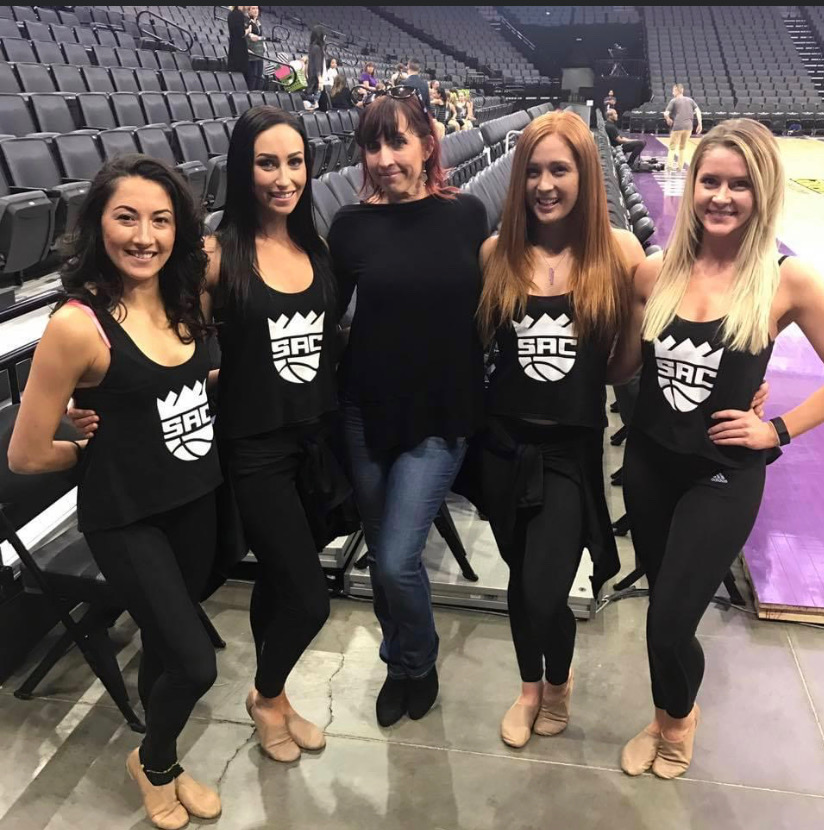
Jolie Roberts, director and coach for the Sac State Dance Team, says Ortiz joined the team with a solid dance foundation to build upon, but still needed to work on increasing her understanding of jazz and ballet.
“She did just that,” Roberts said. “That was the start of her journey in a lot of ways, maturing in her dance technique and education.”
While Roberts denies most of the credit for Ortiz’s success, she says it warms her heart to see her former student thrive in the dance industry.
“It does make me proud to have somebody come out of the Sac State Dance Team program and go on and dance professionally in the community,” Roberts said. “And then create a community of dancers that is thriving, where I can send students.”
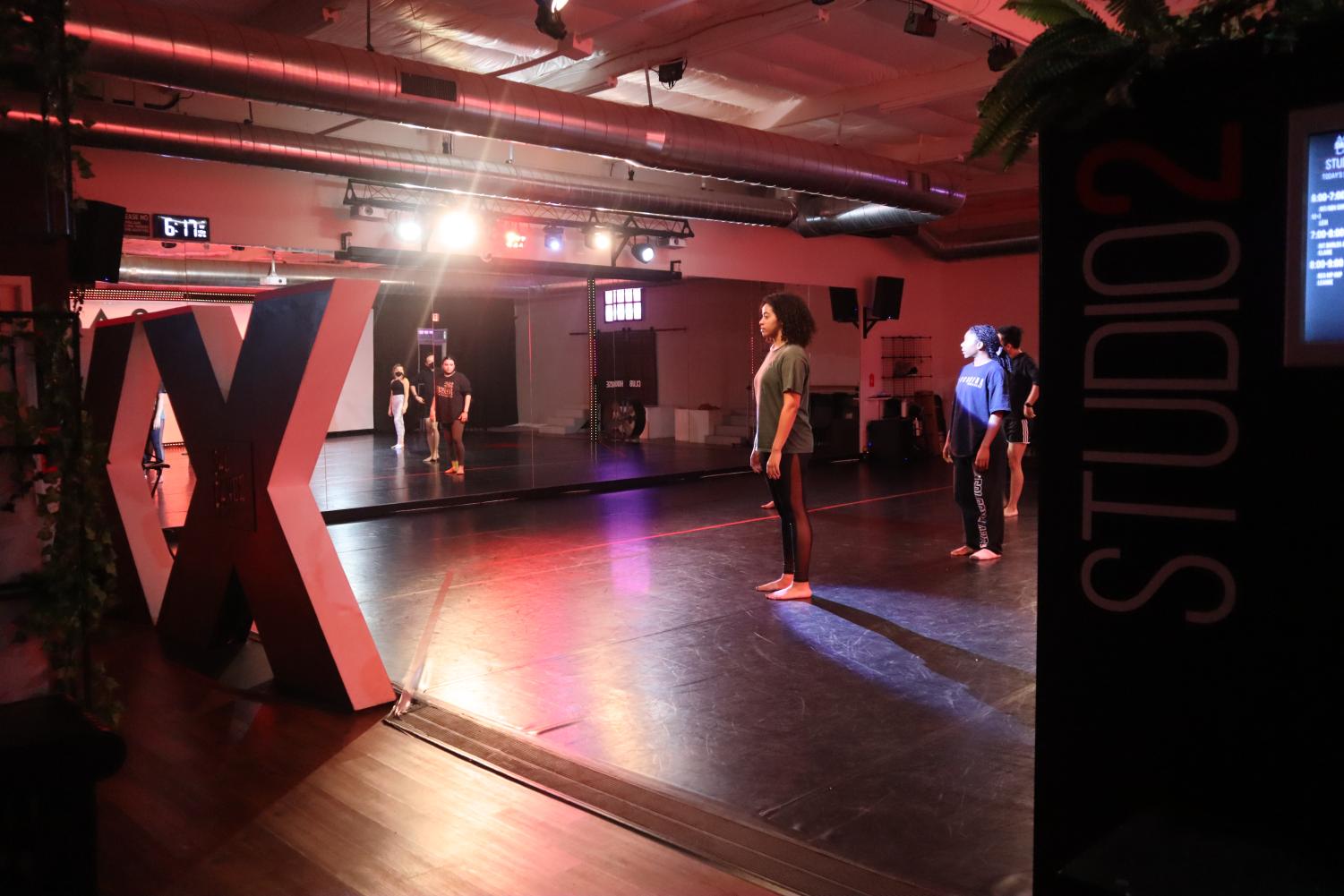
Ortiz spent two years traveling to commercial dance studios in Los Angeles to train, where she realized she might be able to attain a professional career in dance.
“I was working as a young person living in Sacramento and still exploring dance a little bit after graduating,” Ortiz said. “That’s pretty much what exposed me to wanting to dance more professionally and [to] enter the industry.”
Ortiz says the realization of her desire for a career change was gradual and it came to her while she was still working as a journalist and running dance classes on the side. She started by auditioning for the Sacramento Kings Dance Team in 2010. But she did not make the team, realizing that she needed to train to be ready for the next year’s auditions.
Ortiz made the team after auditioning again in 2011 and continued dancing for the Sacramento Kings until 2017. Between seasons, she would continue going to Los Angeles to train, and had to pay for transportation and lodging, in addition to class fees.
Sac Dance Lab opened in January 2017, with just a few available classes. Ortiz taught choreography in similar styles to the professional workshops she had attended over the years and helped people prepare for professional auditions.
“It was not linear,” Ortiz said about the process of developing a full schedule of classes to offer. “It was a response to what we were seeing in each class and what people wanted out of class.”
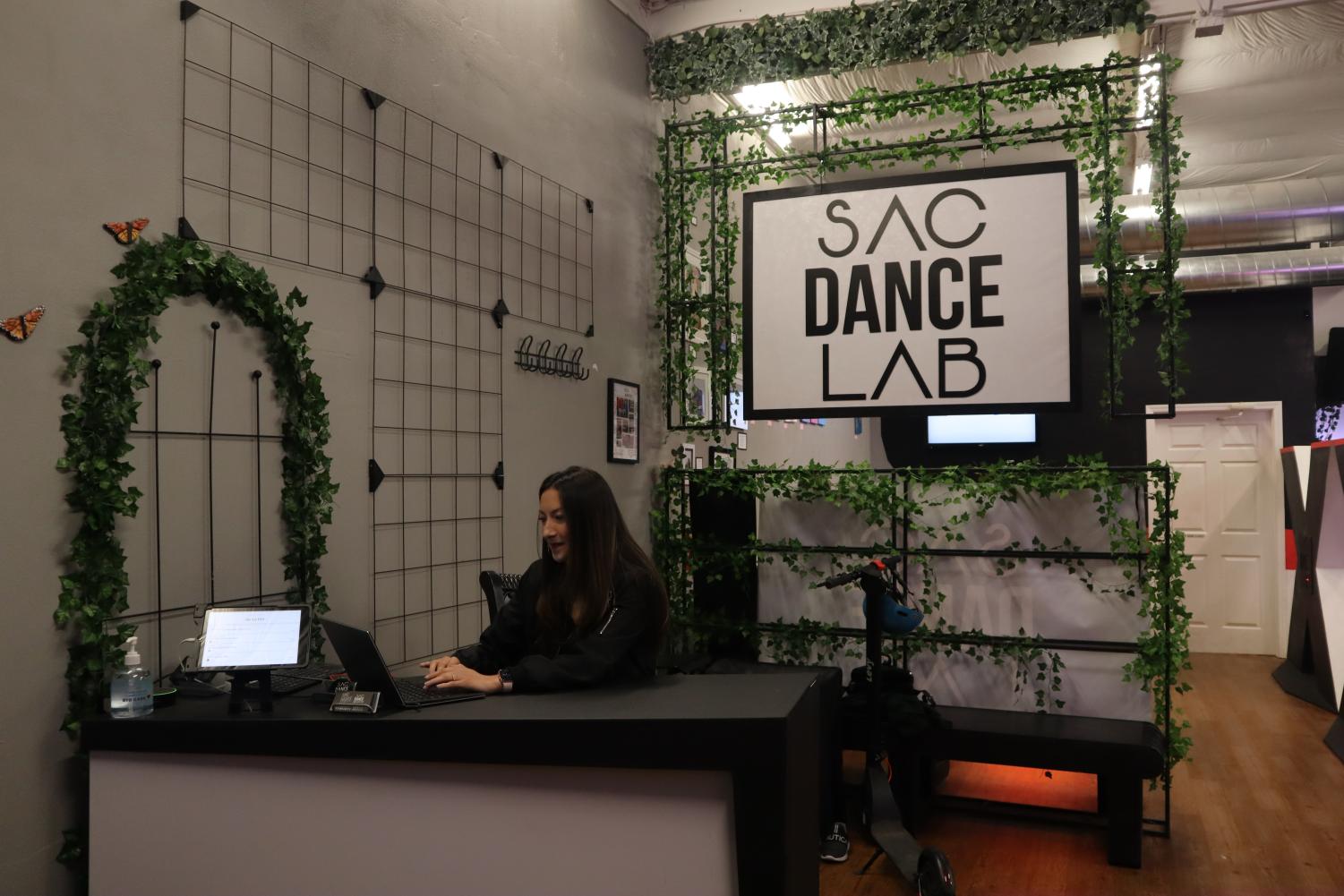
Ortiz runs Sac Dance Lab with her husband Brandon Ortiz, who works on fabrication and technology integration for the studio.
Brandon Ortiz is also a Sac State alum and recently started his business analytics master’s program at the university.
The couple met at Republic Bar & Grill in Sacramento about eight years ago, according to Brandon Ortiz. They had only known each other for about a year before moving to Nicaragua together for six months.
“I had just graduated from Sac State studying computer engineering, and we sold mostly everything we had,” Brandon Ortiz said. “I owned a house at the time, and I put it up for rent and rented out the house.”
Isela Ortiz describes herself and her husband as having been “risk-takers from the beginning.”
“We didn’t know how long we would be traveling for or living outside of the country,” Brandon Ortiz said. “Needing access to the things to continue our professional growth kind of drove us back, and that’s when we started looking into leasing a physical space to run business out of.”
After some time, the two came up with the idea of a dance studio and fabrication business under one roof. They moved back to the Sacramento area in 2016 and began working on a commercial lease for what would become Sac Dance Lab.
In the early years, the couple had to combine their business efforts in order to cover the cost of the lease for the space, which they said led to a balanced division of ownership.
“It’s always been an adventure, just kind of doing crazy things, and Sac Dance Lab is one of those things,” Ortiz said. “We both put everything we had into it, building it out, and I’ve mostly been using it as an opportunity to improve my fabrication and business savviness.”
Brandon Ortiz describes working with his wife, Isela, as a learning experience. Having been immersed in technical subjects, the arts were never on his radar prior to meeting her.
“I learn more, and I’m still trying to understand more about what she does every day,” he said. “And as I learn more, I can appreciate it more.”
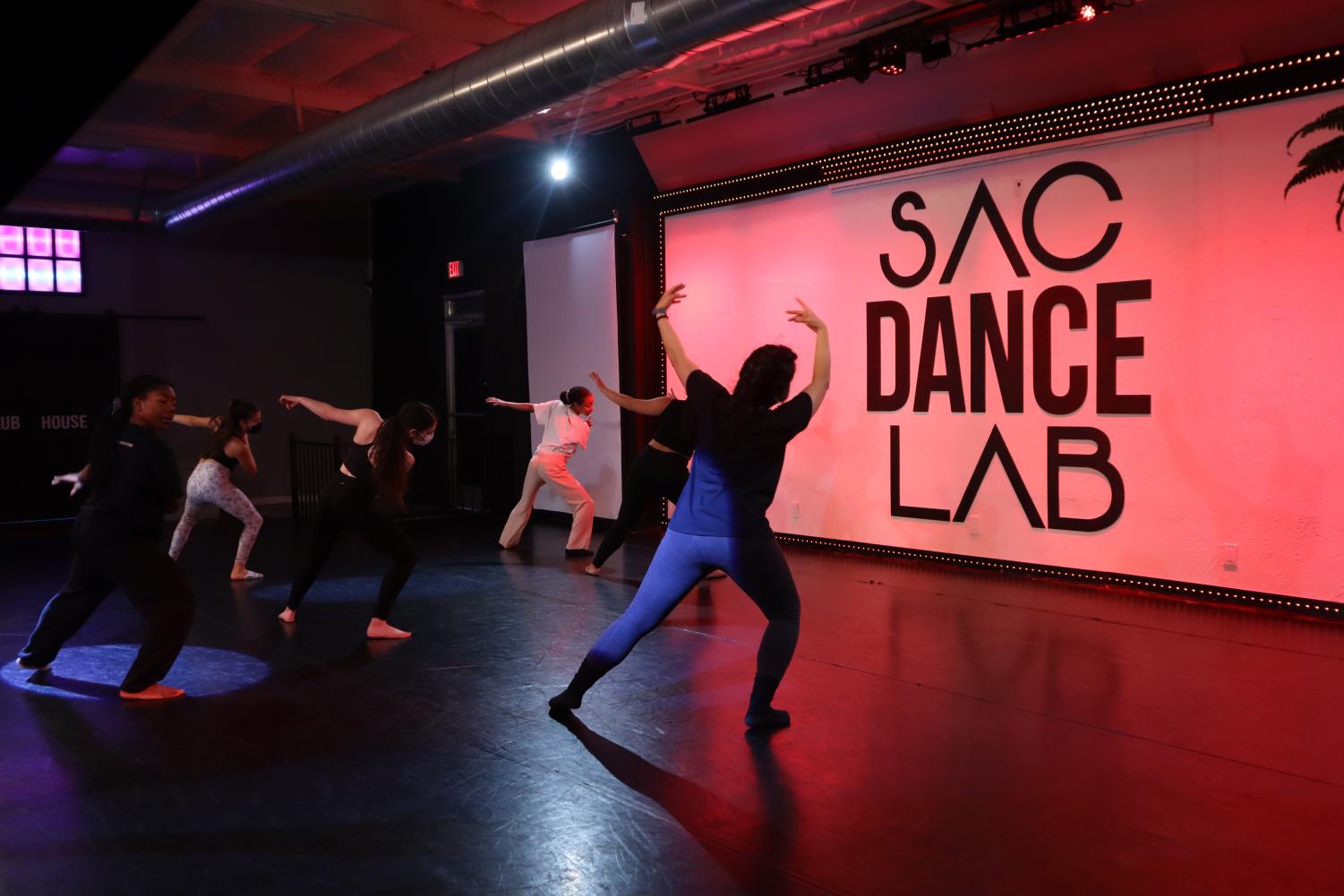
The couple also said that the concept of a creative economy is important to them. The creative economy claims to get Sacramento artists to pursue sustainable careers, which the two support by ensuring that dancers are fairly commissioned for their work.
“In the Sacramento Valley that we know so well, we have incredible athletes,” Isela Ortiz said. “I would love to see more respect in this industry for hip-hop, for those that started in their garage, and still have the same passion and drive that it takes to make it as a creative in a local economy.”
As Sacramento’s creative economy grows, Isela Ortiz’s goal is for Sac Dance Lab to become a local space where full-time artists in the industry can pursue their careers.
“We were lucky in the fact that one thing we could really perceive or react to was how much people wanted to dance,” Isela Ortiz said. “We were able to, ironically, commercialize that, making it accessible and adjustable for people who have no dance experience, making them comfortable coming out and dancing.”






























































































































